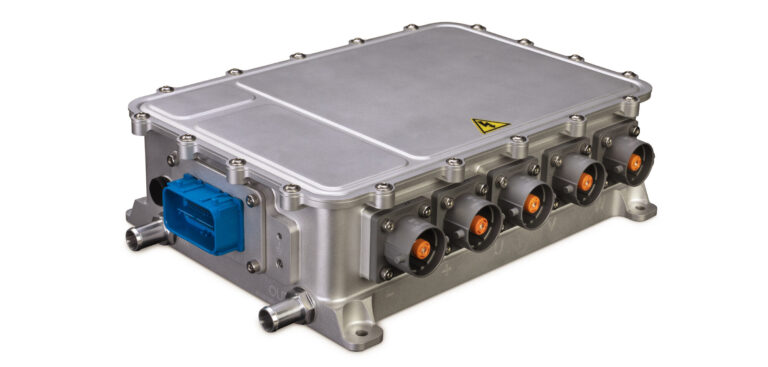UK-based electronics and EV powertrain specialist McLaren Applied says it is closing in on full production of its Inverter Platform Generation 5 (IPG5) – a 800V silicon carbide inverter with what it states is exceptional efficiency and power density. With the product moving to the engineering verification phase, the company is now supplying production intent design hardware to customers and partners for continued development and testing.
The IPG5 is an 800V silicon carbide (SiC) inverter that supports ultra-fast charging and aids powertrain efficiency thanks to low losses. McLaren Applied notes that it has been developing inverter technology for over 10 years, through high-performance automotive and motorsport applications, culminating in a fifth-generation inverter that takes its development learnings from Formula 1 and optimizes the technology for the automotive market.
Nick Fry, non-executive chairman at McLaren Applied, said, “The launch of the IPG5 inverter is a huge milestone for McLaren Applied. We’re delighted to advance to the next stage of development and to begin delivering prototypes to customers. Across the industry, we’re seeing rapid progression of technology – if OEMs want to remain competitive and deliver vehicles with greater ranges, faster charging times and better acceleration, they must make the transition to an 800V silicon carbide architecture.”
According to the company, IPG5 can power electric motors to over 350kW peak, 250kW continuous, with a weight and volume of 5.5kg and 3.79L respectively. It has been designed for automotive applications, including direct drive, and is capable of running high-speed motors efficiently while adhering to ISO 26262 ASIL-D standards.
The 800V architecture was chosen to support the next generation of electric vehicles, offering lighter electric cabling and ultra-fast charging. Thanks to its high switching frequency, the SiC technology allows the use of a faster, more efficient and lightweight drivetrain, including inverter, motor and battery systems. It also switches more efficiently than conventional inverters, producing less heat and enabling a smaller cooling system – all of which reduce the weight and cost of the drivetrain.
McLaren Applied is currently delivering prototype units to customers ahead of volume production from 2024.


